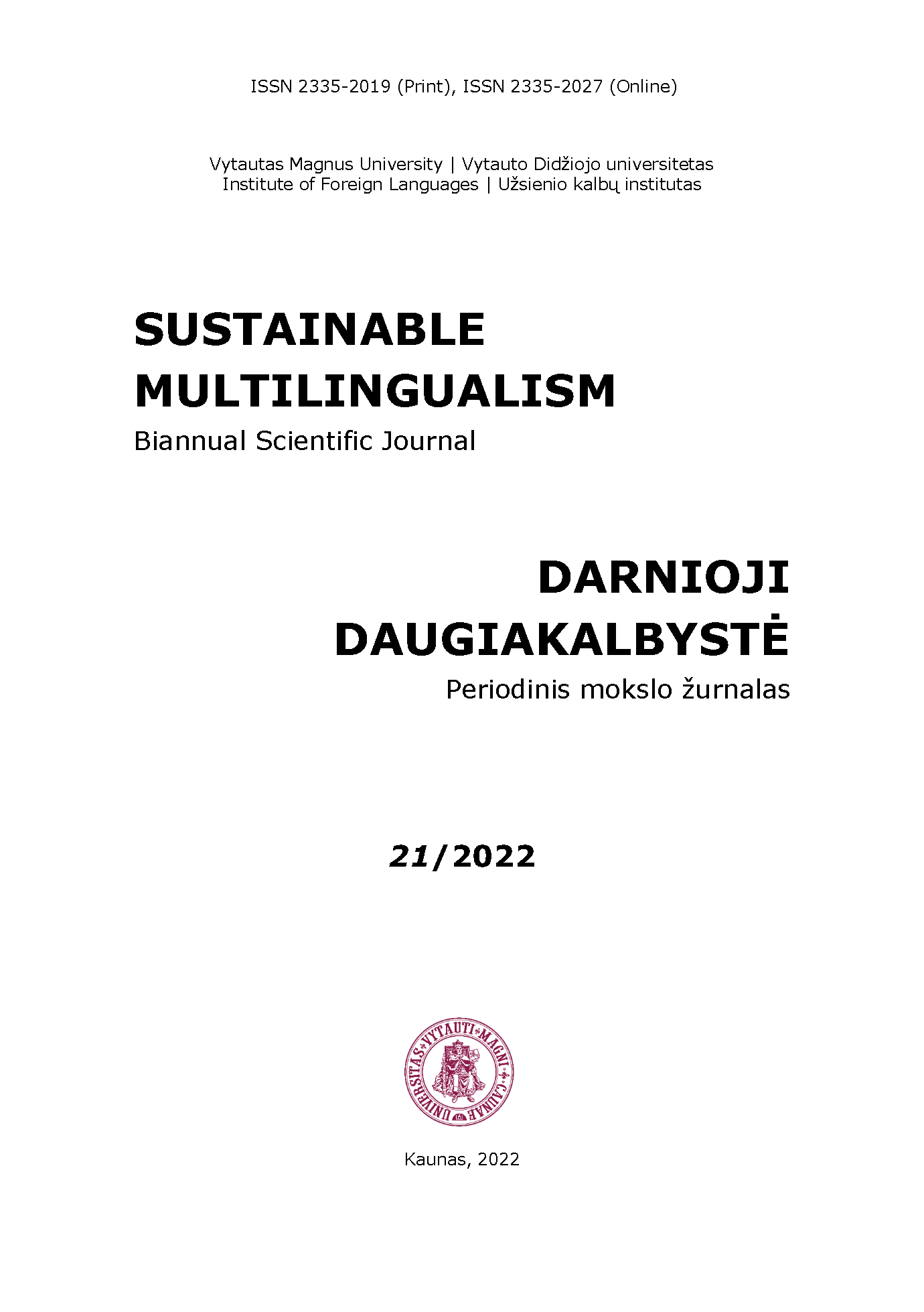Die interaktional-soziolinguistische Analyse der Dynamik von Macht und Solidarität in deutsch-litauischen Geschäftsverhandlungen
Interactional-Sociolinguistic Analysis of The Dynamics of Power and Solidarity in German–Lithuanian Business Negotiations
Author(s): Gintarė Gelūnaitė-MalinauskienėSubject(s): Language and Literature Studies, Economy, Foreign languages learning, Communication studies
Published by: Vytauto Didžiojo Universitetas
Keywords: Business communication; Business negotiation; Interactional sociolinguistics; Dynamics; Power; Solidarity; Politeness strategies; Language teaching for specific purposes;
Summary/Abstract: The article analyses German-Lithuanian business negotiations in the English language, focusing on questions of the dynamics of power and solidarity (Tannen, 1993, 1995), realized through various politeness strategies (Brown & Levinson, 1987). In the evaluation of the audio material and the determination of the type of conversation as “business negotiation”, it has been assumed that this is a communication situation in which the participants want to make an agreement based on different or identical objectives (Wagner, 1995). In the first phase of the analysis, the excerpts of the discussions were selected to determine which goal is being pursued by the participants. In the next phase, the politeness strategies used by the participants are explained to determine how the dynamics of power and solidarity arise locally and which intentions are thereby realized by the participants or what special purpose the local dynamics serve against the background of the general discussion goal. The exemplary analysis refers to the theoretical-methodological approaches of Gumperz, Brown, and Levinson as well as Tannen, whereby special importance is given to the studies that deal with the politeness strategies with regard to the generation of the dynamics of power and solidarity in institutional interaction, especially from the point of view of conversational analysis (Kulbayeva, 2020; Zhuang & Huang, 2020). The results of the analysis could be helpful for learners and teachers of a foreign language, especially if they are interested in intercultural business communication and teaching language for specific purposes and want to deal with authentic material.
Journal: Darnioji daugiakalbystė
- Issue Year: 2022
- Issue No: 21
- Page Range: 249-275
- Page Count: 27
- Language: German

